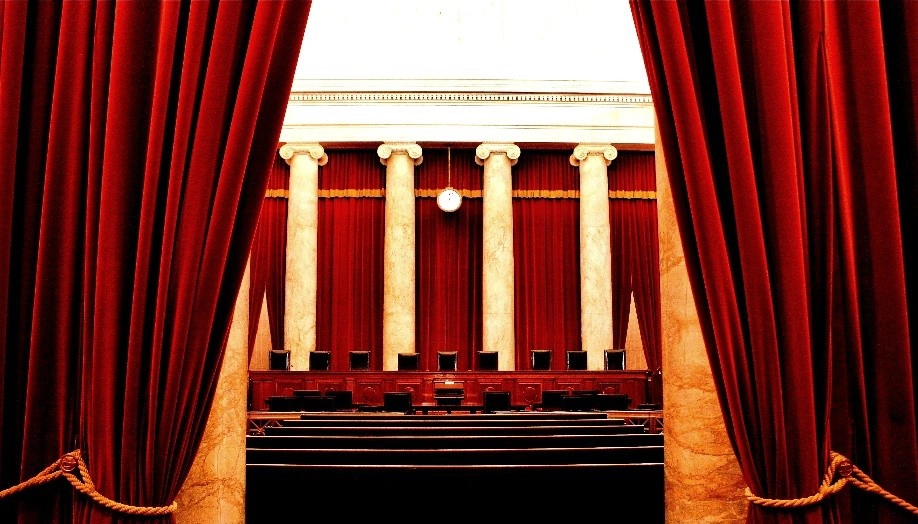
After the Supremes stepped in, Kevin Fair recovered the deed he lost to foreclosure — over a $588 debt.
A Nebraskan got a gift during Christmas week: the return of his house deed.
Kevin and his late spouse Terry Fair lived in one home for 25 years. It was paid off. The Fairs had always kept up with their property taxes. So far, so good. But Terry got diagnosed with multiple sclerosis. Medical bills upended the couple’s finances. Eventually, after failing to pay a bill for $588 worth of back taxes (plus penalties and interest), Kevin Fair lost his deed.
Then the U.S. Supreme Court told Nebraska to reconsider the law that allowed what property rights defenders call home equity theft.
All’s Well That Ends Well—After a Years-Long Struggle
Scotts Bluff County in Nebraska had turned control of the 2014 tax debt over to an investment firm. The Fairs fought back. Just before Christmas, Fair learned the corporation has finally signed his deed back to him.
Fair was allowed to live in the home during the case. Meanwhile, his deed lingered in a years-long limbo:
- After being hit hard by income losses and medical bills, the Fairs let the home’s 2014 property taxes lapse. Their past-due taxes amounted to $588.
- In 2015, the county sold its tax lien on the Fair home title to Continental Resources — an oil and gas company. Continental Resources began paying the property taxes on the home.
- In 2018, the county tax office sent a bill to the home, demanding $5,200 for taxes, penalties, and interest related to the overdue bill.
- The county transferred the deed itself to the oil and gas corporation when the couple couldn’t pay the $5,200.
- In 2019, Kevin’s spouse, Terry Fair, passed away.
- In 2022, Nebraska’s highest court upheld the county’s procedures. The state’s Supreme Court determined that the Fairs gave up their property rights when failing to pay the county’s past-due bill.
- In 2023, the U.S. Supreme Court ordered the Nebraska court to reconsider the county’s prerogative to keep more than the amount a debtor owes. The Nebraska Supreme Court followed the U.S. Supreme Court’s lead, and reconsidered and reformed its surplus retention law.
- In December 2024, the oil and gas corporation settled its case with Kevin Fair.
Lawyers with the Pacific Legal Foundation say Fair and the private debt collection firm have now come to an amicable resolution. The news of Kevin Fair’s ultimate triumph has been reported internationally.
Governments Grabbing the Surplus: It’s Not Just Nebraska

Every year, governments foreclose on deed holders. They let companies take the value of properties from people who have medical setbacks or otherwise run out of money to pay their property tax bills. What these governments and investment companies are taking is much more than the actual back taxes. They take the titles entirely.
Lawyers have long called this home equity theft, and called it an unconstitutional taking. And now, the Supreme Court has backed them up.
Most counties nationwide don’t take people’s titles for minor debts. Most simply place low-interest liens on titles for back taxes — letting debtors save their deeds.
Even when homes go into foreclosure for tax debts, creditors are focused on recovering the balance owed only. Surplus profits after foreclosure will typically be sent to the former deed holder.
But in some states, a home with a few hundred dollars worth of tax debt can be foreclosed and sold for massive profits. In these states, the agency can take the proceeds, without sending excess profits to the former deed holder. It’s called a surplus retention seizure.
Retaining the surplus has long been the status quo in Nebraska before this case. Such seizures are also legal in:
- Alabama
- Arizona
- Colorado
- District of Columbia
- Illinois
- Maine
- Massachusetts
- Minnesota
- New Jersey
- New York
- Oregon
- South Dakota
In these states, local tax departments may seize titles and transfer them at a profit. Or they may just sell the liens themselves to private investment firms that make money off the interest — making the debts far worse for the deed holders.
The Need for Fairer Law and Policy
Kevin Fair’s situation is relatable. So many people are one emergency away from a personal financial crisis. Many are older deed holders who get behind on taxes because medical bills are sucking all the oxygen out of their finances.
Why would governments take more in home equity than a debtor owes — on top of charging fees, interest, and overdue payment penalties? Why would governments aid private firms in their predatory debt collection methods? Why are deed holders being driven into poverty by the day-to-day actions of their local governments? How could a county essentially threaten a long-time resident and property owner with homelessness simply for the lack of a few hundred dollars?
Those questions are what Kevin Fair’s case presented to the Supreme Court to answer. The problem is at the U.S. Supreme Court’s doorstep because of a New York case that dates back to 1956. In Nelson v. City of New York, the Supreme Court allowed a seizure by New York City over a deed holder’s overdue water bills.
Today, thanks to Kevin Fair’s endurance, Nebraska deed holders do not face losing their home equity bover unpaid property taxes. The settlement for Fair himself is wonderful news, and stands to impact policy in all the above-listed states and the District of Columbia. The Supremes still need to tell the public, though, whether Nelson v. City of New York is an applicable defense for all states that allow for surplus retention, a.k.a. equity theft.
For Our Readers: Heading Off Tax Debt Struggles
Tax lien rules, procedures, and collection limits are all state-based. You can look up your state revenue services to learn more. Check for any plans offered by your state to pay off back taxes and clear a home’s title records.
Concerned you might have a tax lien? The new year is the perfect time for an annual review. Check with the recorder of deeds in your home’s county. You may also review your tax records on the local, state, and federal revenue departments’ websites.
Local organizations may offer affordable legal assistance. An example is the Legal Aid Society of Cleveland and its Low Income Tax Payer Clinic.
Deed holders, seniors especially, should also check in with their accountants or tax consultants. Try to plan for any issues that may arise, before they actually do. And look out for any updates in law and policy — especially in a post-election year that brings new federal and state leadership.
Supporting References
Brian Mastre and Gray News staff for WOWT / WAGM 12 via Gray Local Media, Inc.: Man Who Lost His Home Over $588 Gets Title Back After State Supreme Court Ruling (Dec. 25, 2024).
Associated Press via the New York Post: U.S. News – Nebraska Man Who Lost His Home of Almost Three Decades Over $588 Debt Is Getting It Back (Dec. 26, 2024).
Deeds.com:The Tax Lien Cometh (Aug. 17, 2020).
And as linked.
More on: Taxes, Judgment lien versus levy
Photo credits: Sora Shimazaki, via Pexels/Canva; and Wikimedia Commons, CC-BY-SA 2.0.
